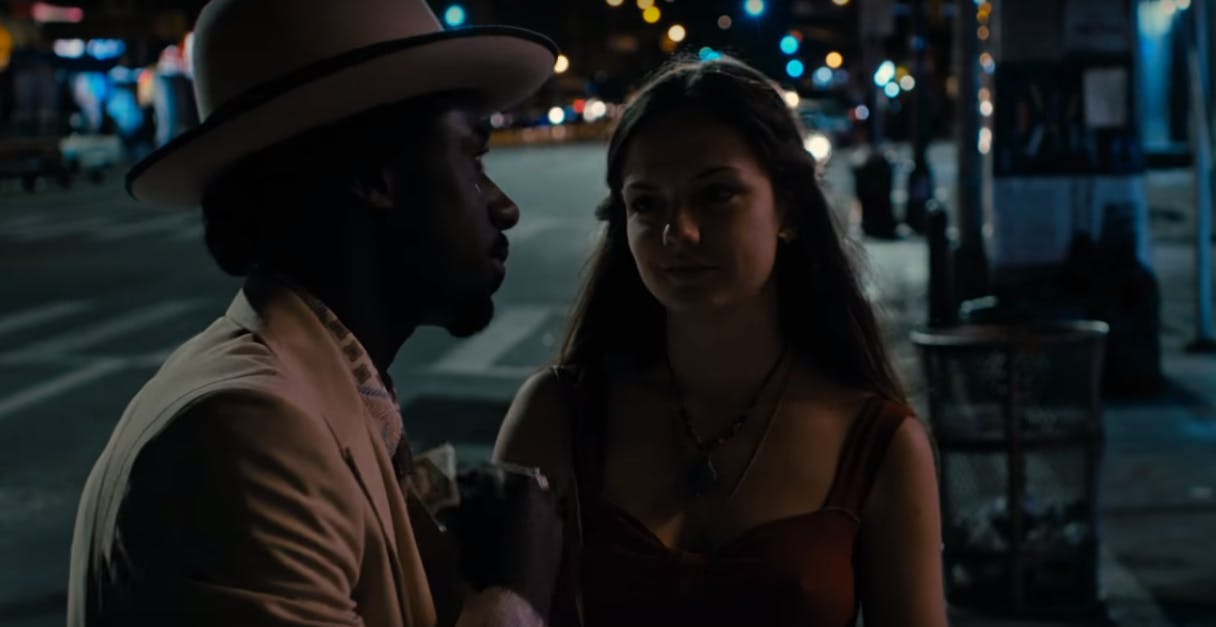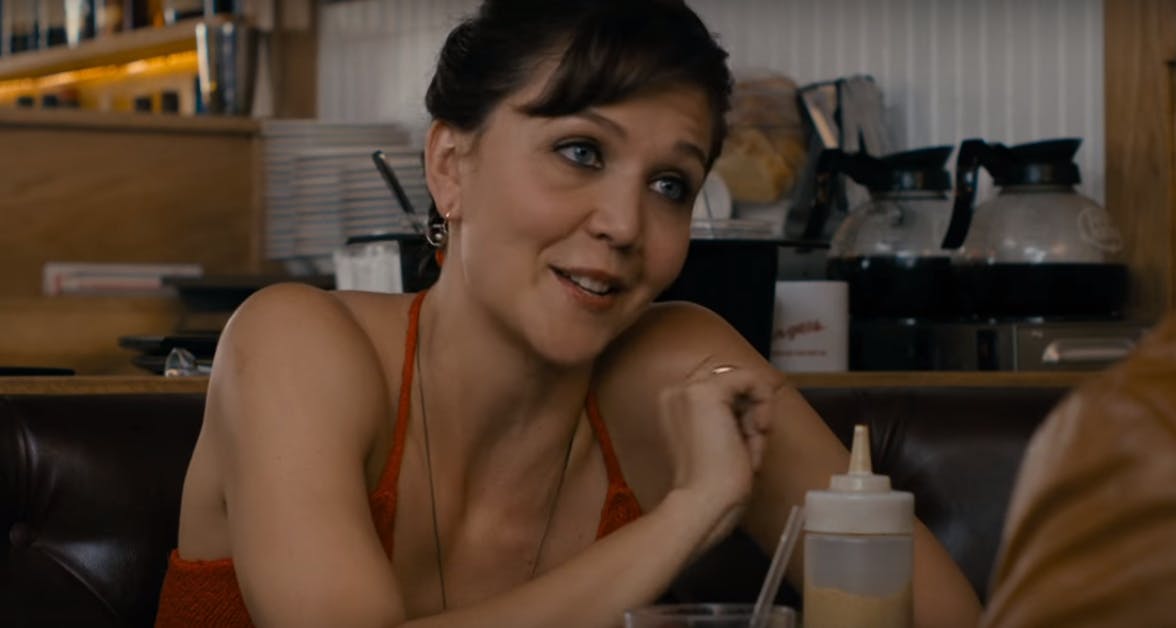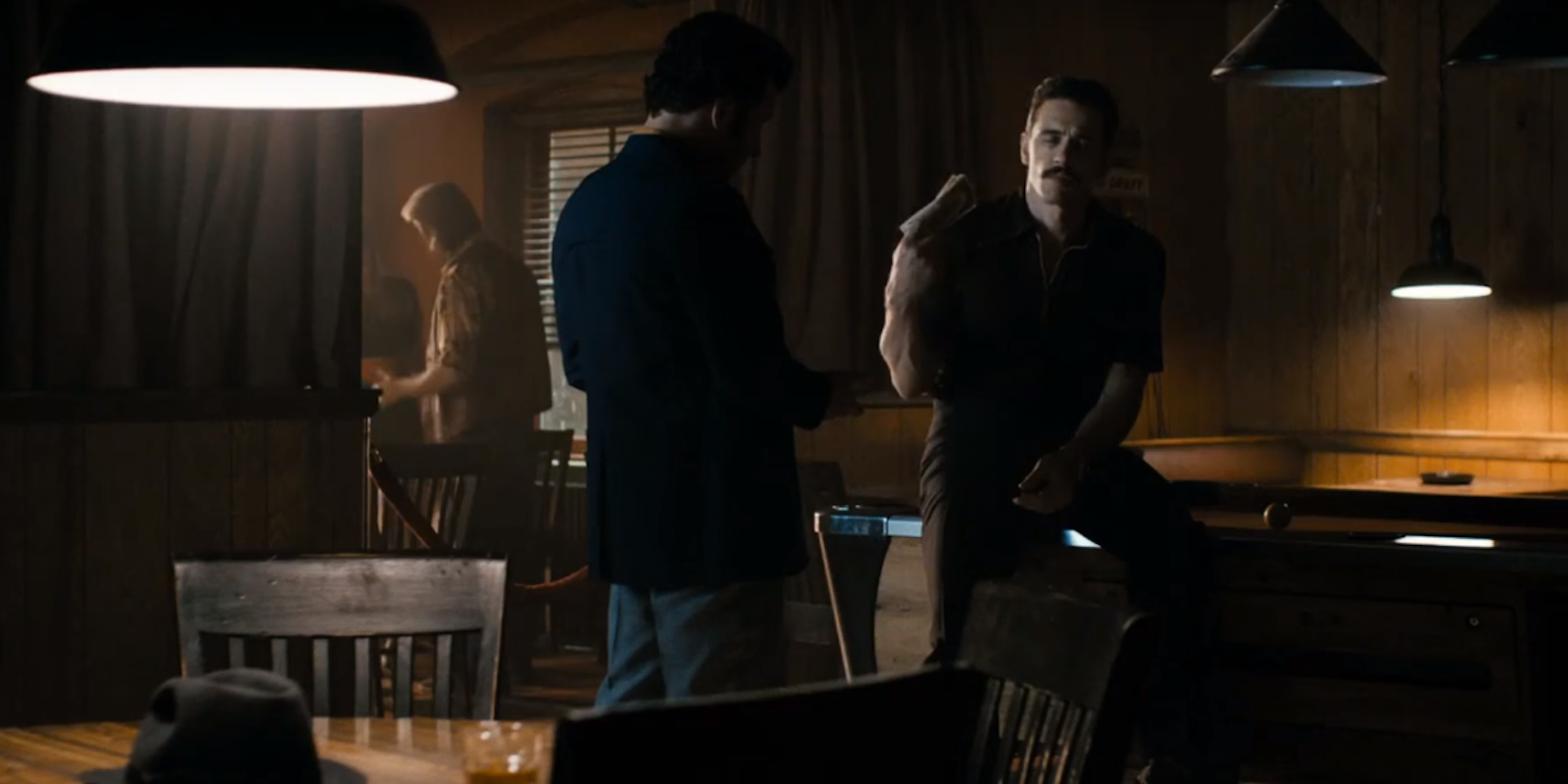In ‘70s-era New York City, pornography and prostitution loomed large in the center of America’s commercial hub: Times Square. Pimps and sex workers roamed the streets without much worry for the law. Peep shops were a dime a dozen. And marquee theaters, loudly advertising titles like XX Porno on display boards, screened lurid adult films. The Deuce, HBO’s new period drama from David Simon and George Pelecanos based loosely on true stories, takes us into this realm of sex, drugs, misogyny, and exploitation on the streets of New York.
The Deuce is a story about sex workers: From the entrepreneurial “Candy,” who also moonlights as a mother (played by Maggie Gyllenhaal), to the naïve, young transplant Lori (Emily Meade). It’s a story about pimps, who control these women hoping to earn a living with power and authority. And it’s a story about twin brothers, Vincent and Frankie Martino (both played by James Franco), who run bars and massage parlors as fronts for the mob’s sex work business.
Simon, best known as creator of The Wire, and his longtime co-writer Pelecanos initially didn’t want to tackle portraying such an “exploitative and gratuitous” time in history. Marc Henry Johnson, a locations manager for Simon’s show Treme about New Orleans post-Hurricane Katrina, convinced him to meet a man involved in the ‘70s New York sex and porn industry on 42nd Street.
“The stories were just extraordinary,” tells Simon to the Daily Dot. “And the more he talked, the more I realized there was sort of a political moment here. An economic moment that I was also interested in.”

That moment is captured, vividly, cinematically, and unflinchingly in The Deuce. It details the intricate business of sex work and the coming legalization of pornography in New York circa 1971: The players, including the complicit cops and all sorts of nasty men from johns and photographers to shop owners, and the anything-goes landscape of the city in that era. It dives into important issues of the time, from the rise of HIV to the drug epidemic. It explores the proliferation of pornography as we know it. The period clothing (think garish ‘70s style) and incredibly realistic backdrops of Times Square and the city in the era are also a highlight.
And, yes, there are sex scenes, although they’re used deliberately and delicately. “You want the imagery and the narrative to be neither prurient—you don’t want the camera to linger longer than it should— you don’t want the camera to indulge itself in flesh,” explains Simon. “And at the same time, you don’t want it to be puritan. You don’t want to like veer away from what pornography or sex work is, because if it does that, then pretty soon you’re in Pretty Woman country. Either extreme, you fail.”
Simon and his team knew that including the female point of view was vital to the show. Women directed four of the episodes, including Michelle MacLaren (The X-Files, Breaking Bad, Game of Thrones). Gay and trans writers were likewise instrumental in writing the scripts.
Gyllenhaal—who spoke with former prostitutes and porn actresses in preparation for her role—was a crucial voice on the producing team, as well.
“She said ‘Look if I do this, I’m really going to go for it. I’m going to play the hell out of this. If I’m going to do it, I want to know that we’re doing it for the right reasons. I want to know that we’re actually speaking to what pornography and prostitution are and to what misogyny is. And I want to address misogyny,’” notes Simon. “And good news, that was the only legitimate reason why we would be doing it.”

Following in the footsteps of The Wire and Treme, The Deuce ties together many historically plausible storylines to tell the tale.
“Everything that we put in the narrative either happened, or it didn’t happen but was rumored to have happen, or didn’t happen but it could’ve happened,” says Simon. “But either way, it has to be real to the actual story of the real history of the time and place. So that’s true for post-Katrina [in Treme], that’s true for Baltimore and the drug war [The Wire], that’s true for 42nd Street [The Deuce].”
And that’s the reason why Franco plays both Vincent and Frankie Martino. The man who initially told Simon the stories that inspired The Deuce had a twin brother he was in business with.
“The fellow who was the mob front was in business with his brother and his brother-in-law in various enterprises along 42nd Street. And the narrative of what happened to him and his brother and the relationship between the two turned out to be very powerful stuff as you proceed forward,” says Simon.
“If we do get a chance to proceed forward into subsequent seasons, it will yield dividends.”


